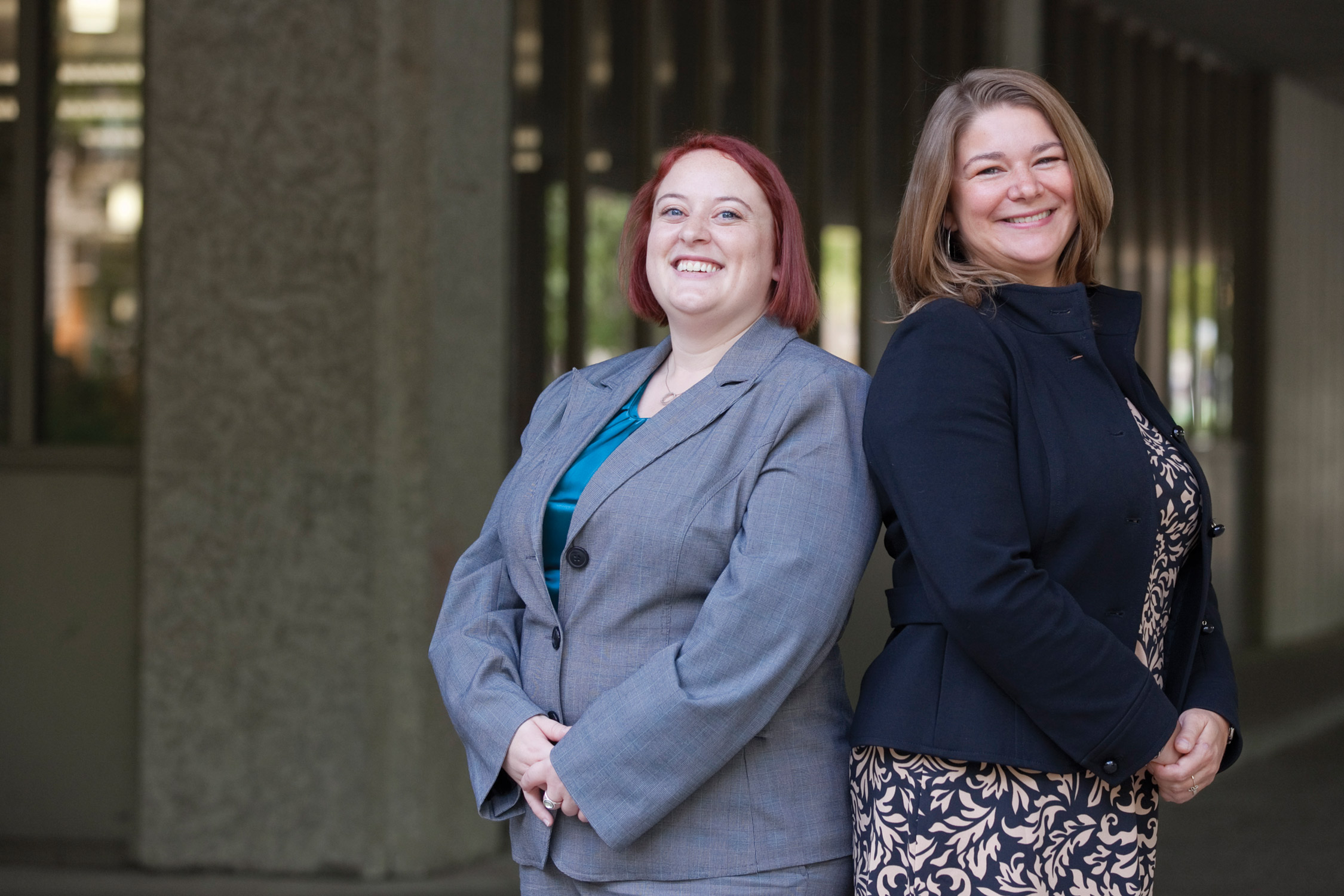New Lab Makes ViTAL Connections
University of Saskatchewan researchers will soon be using state-of-the-art video equipment to help rural Saskatchewan residents with dementia and children with post-traumatic stress syndrome.
By Mark Ferguson Megan O'Connell and Jorden Cummings, both assistant professors of psychology, have been awarded $66,857 from the Canada Foundation for Innovation (CFI) and a matching provincial grant to establish the Video Therapy Analysis Lab (ViTAL) in the college of arts and science.
Megan O'Connell and Jorden Cummings, both assistant professors of psychology, have been awarded $66,857 from the Canada Foundation for Innovation (CFI) and a matching provincial grant to establish the Video Therapy Analysis Lab (ViTAL) in the college of arts and science.
Slated to open in 2013, the lab will be located in the Arts Building and form one component of the college's new Social Science Research Laboratories (SSRL).
The facility will include a room with multi-angle video cameras for psychotherapy sessions, a larger room with videoconferencing equipment that may be operated through Saskatchewan Telehealth or the internet, and a third space for data analysis.
O'Connell will use the videoconferencing equipment to deliver virtual group therapy to rural families of people with dementia, while also researching the effectiveness of videoconferencing therapy.
"The beauty of videoconferencing," says O'Connell, "is that it is almost like being in the same room together for a group session."
Cummings will use the lab's multi-angle cameras to analyze how individuals, especially children with post-traumatic stress disorder, interact in a therapy session.
Both researchers hope to gain an understanding of how using technology for the delivery of these therapies influences the therapy itself.
O'Connell is part of a team at the Rural and Remote Memory Clinic working to improve the care of people with dementia. She is currently using the Saskatchewan Telehealth network to conduct group therapy sessions with geographically isolated people whose family members have been diagnosed with rare forms of dementia.
Telehealth offers secure links across the province for videoconferencing, usually in hospital or clinic settings. Participants at each site see one another on the screens and can interact as if in person. ViTAL will offer O'Connell this same capability.
"Receiving a diagnosis of dementia is devastating," says Joanne Bracken, CEO of Alzheimer Society of Saskatchewan.
"Often people receiving the diagnosis and their families are sent home with minimal information and no supports. They are left to face the challenges of the dementia journey alone. Being able to connect with others who are going through a similar experience is invaluable to caregivers.
"The Alzheimer Society supports this project as it provides much-needed support to families across Saskatchewan regardless of where they live. It also connects them to a group of professionals that they would not usually have access to in their home communities."
O'Connell is also exploring the possibility of using ViTAL's videoconferencing capability to provide exercise-based intervention to persons with dementia. She points to physical activity and exercise as one of the only things you can do to help with cognitive aging.
"With ViTAL we can move into integrating cognitive exercise with physical exercise using (video-game platforms) Wii-habilitation and Kinect, which senses body movement. Pretty exciting."
Cummings' research will focus on psychotherapy with children who have experienced some type of trauma, such as sexual abuse, physical abuse, or domestic violence. Her long-term goal is to help refugee families who have experienced trauma.
The lab will also be essential in the training of clinical psychology graduate students, she says.
Both O'Connell and Cummings hope ViTAL will lead to new and innovative collaborations. "When you do research near people who do similar yet different things, you can come up with some interesting ideas," says Cummings. "We are both really excited about ViTAL's potential."

